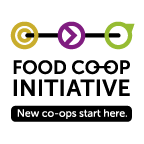You’ve Got Your Market Study, Now What
You have had your market study done and the results are in! Now what?
Designer and creative thinker.
You have had your market study done and the results are in! Now what?
A webinar highlighting the process for using house parties, tabling, and other outreach events to build ownership.
What’s a program? Where and when does your co-op need one? The answers might be more critical than you know.
A formal business plan helps to bring structure to your plans and provides the necessary information for banks and owners to review before committing capital.
Urban Greens Co-op shares their experience using a Direct Public Offering for their capital campaign.
Co-ops raise funds for many startup costs through member equity. But what about co-ops that have not yet been incorporated?
This guide will help food co-op organizers plan an effective campaign to raise the money they need to open their co-op.
In 2016, Green Top Grocery (GTG), a startup in Illinois, ran a record-setting capital campaign.
Now for the first time, consumer-owned co-ops can apply for SBA loans. What is the SBA loan guarantee and what could it mean to your startup food co-op?
Is your startup planning an owner capital campaign to launch in the next 12 months?
This guide seeks to clarify the tools and resources available for food co-ops to efficiently secure and develop the physical space needed for their store.
We’ll dive into understanding the work of managing your project for success.
Bruce Meyer, CPA, explains the special accounting and tax regulations for consumer-owned food co-ops.
This chart of accounts example is aligned with the financial reporting used by CoMetrics for tracking and reporting food co-op performance.
This session addresses three issues: 1) How do we set agendas? 2) How do we have productive meetings? 3) How do we get stuff done and hold people accountable?
As a startup food co-op board, you are a “working” board, rather than a purely “governing” board. How do you assess together as a board how you are doing and where there is room for improvement as a working board?
This outlines the basic constructs of the Carver Policy Governance system.
The policies that startup boards need are different from those of operating stores. Here are templates based on Carver Policy Governance designed for pre-opening.
These experts in cooperative law walk us through understanding how to meet our legal obligations to hold owner meetings at a time when everyone is sheltering-in-place during a pandemic.
A Sources and Uses budget (S&U) is one of the most important business planning tools that a startup co-op will use.
Food Co-op Initiative provides exceptional resources for people in the U.S. working to start a retail food co-op that meets the needs of their community. New startups can use our materials at no charge and are able to reach out to our staff for phone consultations and additional technical help.
Have questions, want to know where to start?
Call today: (844) 324-2667
Food Co-op Initiative is a 501(c)3 nonprofit and donations are tax-deductible to the extent permitted by the law. Food Co-op Initiative is an equal opportunity employer and does not discriminate with regard to race, color, religion, gender, sexual orientation, age, national origin, or disability.
